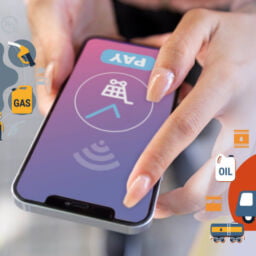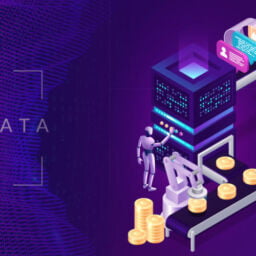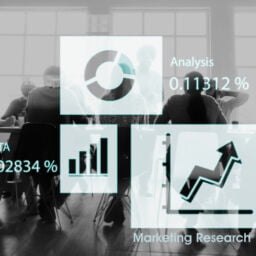
Real-time travel data helps hospitality companies and transportation systems to optimise their business management and sales and reduce delay, congestion, and air pollution. Getting instant information in the travel industry can support you in offering better travel solutions, improving customer experience, and defining appropriate business strategies and tactics.
Real-time travel data use cases can go from price monitoring to safety updates. With billions of data generated and published daily, you need to know what data type to search for, the available data sources, and the best data extraction technique or web scraping service.
10 Real-time Travel Data Scraper Applications
Real-time travel data scraping has numerous practical use cases across the travel industry. It can benefit hotels, airlines, travel agencies, transportation providers, car rental companies, events management businesses, and more. Here are some examples.
1. Flight Price Monitoring
A Real-time data scraper allows traditional and online travel agencies (OTAs) and travellers to monitor flight prices instantaneously. This helps identify price drops, flash sales, or limited-time promotions to book flights at the ideal rates.
2. Flight Availability and Booking
Real-time air travel data of flight availability data from airlines, OTAs, or global distribution systems (GDS) allows travellers and travel agencies to check seat availability, secure reservations, and book flights instantly.
3. Flight Delay and Cancellation Notifications
Your travel company can provide timely updates to travellers regarding flight delays, cancellations, gate changes, or other disruptions by scraping real-time flight status information from airline websites or flight tracking platforms. This helps travellers adjust their plans and make alternative arrangements.
4. Hotel Room Availability and Booking
Web scraping of real-time data of hotel room availability, rates, and promotions from various hotel booking platforms and sites helps users find and book available accommodations at competitive prices.
5. Hotel Rate Parity Monitoring
Real-time scraping enables hotels to monitor rate parity across multiple online channels. It helps identify instances where prices on different platforms deviate from the agreed-upon rate parity. This way, your hotel can take corrective measures and ensure consistent pricing across all distribution channels.
6. Travel Advisory and Safety Updates
Real-time tourism data scraping of travel advisories, safety alerts, and weather information helps travellers and travel agencies stay updated on potential risks and make informed decisions regarding travel plans.

Don’t Miss Our Tips & Bonus
7. Dynamic Package Offerings
In the travel industry, offering custom packages and optimising inventory management can be a distinctive success factor. Real-time data scraping allows your company to create dynamic travel packages by combining real-time flight, hotel, and rental car availability.
8. Event and Concert Ticket Availability
Real-time data scraping of ticketing platforms and event websites allows users to monitor ticket availability for popular events, concerts, or sports matches. This helps them secure tickets promptly before they sell out.
9. Car Rental Price and Availability
Car rental platforms and aggregator websites provide information on rental car availability, pricing, and promotions. Real-time scraping allows you to compare options and book rental cars at competitive rates.
10. Travel Deal Aggregation
Real-time scraping is an optimal solution for your travel deal aggregator to collect and display the latest travel bargains, discounts, and promotions from various sources. This way, your company can provide users with a consolidated view of the best offers in the market.
These practical use cases demonstrate how real-time travel data scraping enhances travel planning, decision-making, and customer experiences by providing the most accurate and up-to-date available information in the travel industry.
Real-time Travel Data Sources Examples
You can use many websites and platforms as real-time travel data sources. But what are the most popular? Here are some examples.

Airlines’ official websites
Each airline has a corporate website that provides real-time flight schedules, fares, availability, and other relevant information. There are over 5,000 airlines worldwide. Some examples include United Airlines, Delta Air Lines, British Airways, Singapore Airlines, and many more.
Online Travel Agencies (OTAs)
OTAs aggregate flight, hotel, and car rental data from various sources. Some well-known OTAs include Expedia, Booking.com, and Kayak.
Flight Aggregators
Flight aggregators compile data from multiple airlines and OTAs to provide comprehensive flight information. Some of the most used websites are Google Flights, Skyscanner, and Momondo.
Flight Tracking Websites
These companies offer real-time flight tracking, status updates, and other airline data information. Have may have heard of FlightAware or FlightStats.
Hotel Booking Platforms
Booking.com and Expedia are also hotel booking platforms. But there are many more, such as Hotels.com, Agoda, Airbnb, OYO (India), and Trivago. They provide real-time availability, pricing, and other hotel-related data.
Government Transportation Agencies
Organisations like the WSDOT (Washington State Department of Transportation) can provide transportation information about travel conditions, alerts, cameras, truck restrictions, and weather.
Navigation system providers
One example is the TomTom International company. It offers real-time data (updated every 30 seconds) in more than 80 countries about road closures, traffic jams, vehicle speeds, traffic insights and analytics for traffic management centres, highway agencies, and road authorities.
The collected and analysed data allows fuel efficiency and better safety for delivery services and on-demand divers. TomTom traffic data sets are available through a TPEG (Transport Protocol Experts Group) service, server-to-server integration, and traffic API.
It’s important to note that the availability and structure of real-time travel data may change over time, and it’s essential to review and comply with each website’s Terms of Service and scraping policies before conducting any web scraping activities.
When conducting web scraping, it’s best to identify specific websites and sources relevant to your target travel data and thoroughly analyse their suitability for scraping based on their data availability, accessibility, and legality.
Your Next Step
Real-time travel data are valuable for your transportation, hospitality or tourism business. It helps you offer tailored services, minimise operational costs and time, improve customer experience, reduce the environmental impact, and improve your profit.
By its nature, real-time travel data is massive and changes continuously. Therefore, only advanced big-data web scraping, data mining, and travel analytics can help you effectively. So, look for the data solution that best fits your company structure and workflow: ask a web scraping service provider or do it yourself through a self-service data scraping tool.
Get a Free Data Audit Now
DIY with a web scraping tool
Extract web data easily and cheaply with a self-service no-code app.
Disclaimer: Always respect user privacy and copyright, follow ethical data scraping practices, and abide by the terms and conditions of the websites or platforms you’re scraping data from, as unauthorised data extraction may lead to legal or privacy issues. Therefore, ensure that your data collection and analysis methods are compliant. Furthermore, data can be noisy, unstructured, and constantly changing. Therefore, use a tool or service that can handle the volume and variety of data from multiple web sources. This article is for information purposes only and not intended as legal advice. Consult a lawyer for complete knowledge of the local and international laws.
Girl image by Image by photoroyalty

















[…] By Denis Giuffrè – WebRobot Marketing Big Data Technology Travel and Tourism Web […]
[…] key benefit of tourist places’ web scraping is the ability to gather real-time data about travel destinations. This includes data on current weather conditions, local events, […]
[…] tools provide real-time data about weather, flight delay predictions, and analysis of routes, procedures, and documents. This […]
[…] analysing historical and real-time data, you can define the best pricing strategy and run effective marketing campaigns. You can also […]